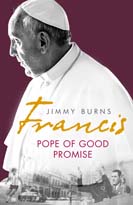More than thirty years of journalism, much of it investigative, with one of the most respected newspapers in the world- The Financial Times- taught me to be mindful of two of the contradictory threads in human nature: there is often more cock-up than conspiracy, while there is seldom smoke without fire.
In the absence of the full facts of the case being in the open, and pending the outcome of an ongoing judicial enquiry , I am reluctant to jump too quickly to any conclusions about the current goings on at FC Barcelona, off the pitch.
But as this is a club that I have publicly commented on for many years and to which I feel part of me belongs as a fan and a paid up member, I cannot remain silent, lest this might be interpreted as indifference. Of one thing I am clear: the sudden resignation of Barca president Sandro Rosell raises more questions than answers with the act itself-impetuous rather than calculated or widely consulted according to a high level source- doing the club no favors as it enters the most competitive stage of the season.
If this is a conspiracy, it begs the question as to who is behind it and what the motivation might be? A senior executive of Barca I dined with earlier this week suggested that the negative commentary about Barca under the Rosell presidency from the questioning of his controversial sponsorship contract with Qatar and Pep Guardiola’s departure through to allegations of unpaid taxes by the Messi family and now the Neymar deal came from unnamed persons, envious of Barca‘s success and determined to undermine the good name of Catalunya as it presses for its right to hold a referendum on independence from Madrid-a right wished for by 80 per cent of the current membership.
That would suggest that not just tax inspectors, and judges, but some of Barca’s own members, former star players and managers (inter alia the emblemic Johan Cruyff), and ex club executives who have been critical of Rosell’s personality and governance are really working actively on an anti-Catalan or anti-Barca agenda and in some cases, like Jordi Cases, paid up double-agents.
Mr Cases, in case you didn’t know this by now, is the individual nicknamed by some Barca excecutives ‘el diablo‘ or the devil. He has been a thorn in the side of the Rosell regime for over four years, specifically since 2010 when he and other Barca fans helped launch an unsuccessful campaign to try and stop FC Barcelona from breaking with tradition and selling its strip not just for money, but to a Arab country with a disputed record on human rights and allegations of corruption hanging over it.
Mr Cases runs a pharmacy in Barcelona not far away from the Nou Camp. He is a paid up member of FC Barcelona. Politically he declares himself a Catalan nationalist and in favour of independence from Spain . Today, after Rosell had resigned, Mr Cases was reported to have suggested that dark anti-Catalan forces had used him for their own purpouses , thus fuelling the conspiracy within the conspiracy theory. But until now he appears to have had more in common ideologically with former FC Barcelona chief turned radical politician Joan Laporta than Real Madrid’s Florentino Perez.
An alternative narrative is that Rosell whose dealings in Brazil date back many years to his time as a senior Nike executive, could have foreseen that the Neymar contract was always bound to be subject to scrutiny and could have saved himself and the club a lot of trouble if he had insisted on a straight deal with the various parties that appear to have been involved in aspects of the contract.
What I have been told by a usually reliable source about the Neymar deal suggests that it was far from straight forward, that arrangements were made to try and minimise Spanish tax liability, that Rosell agreed to raise the price the club was prepared to pay and signed under some pressure, with fears -perhaps inflated by interested parties-that the Brazilian’s representatives were in an advanced stage of a counter bid by Real Madrid, in breach of earlier understandings.
Rosell certainly did not share Mr Cases’s belief that he Mr Cases, as as a paid up member of a club owned by its members, had every right to demand chapter and verse of Barca‘s financial dealings , whether involving major sponsorship deals, TV contracts , ticketing,stadium construction, or indeed players,however many goals they score.
Mr Rosell has repeatedly insisted that there is nothing sinister behind the euros 57 million he says was paid for Neymar, believes that Barca fans should be thankful that he paid a great deal less for a better player than Real Madrid paid for Gareth Bale, and that only confidential clauses has prevented him from revealing more details. Perhaps club presidents, agents, and players around the world have been getting away with this kind of attitude for many years, believing that total financial transparency is not good for the morale of the dressing room, and let alone of the fans who generally earn much less and pay more tax and most of whom at the end of the day just want to see their team play well, and win.
But by its own definition, Barca is mes que un club , more than a club- it aspires to exemplary human conduct not just in the quality of its football , but in the way the club engages with the world, in the way it claims to have a true sense of the common good beyond commercial gain or even personal ambition.
Sandro Rosell should know that the best reputations endure on the basis of honesty not obfuscation. For if he doesn’t, his resignation will come back to haunt him as a less than honourable act of escape.


Comments